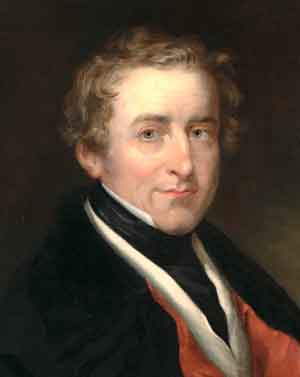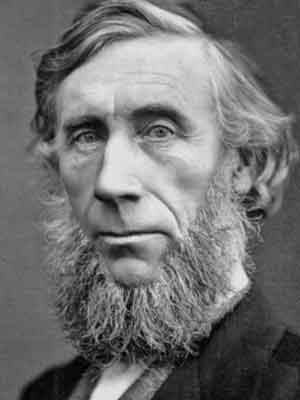JULY
02/1850

Sir Robert Peel (62), founder of the Conservative Party and British prime minister, died. In nationalist Ireland Peel would perhaps be best remembered as Daniel O’Connell’s nemesis, the man with the chilling smile ‘like the silver plate on a coffin’ who was forced to concede Catholic Emancipation (1829), who suppressed the Repeal movement and who only partially redeemed himself with his purchase of Indian meal at the outset of the Great Famine. Yet, if he had no sympathy for Irish aspirations and, when chief secretary for Ireland (1812–18), was fond of drinking the Orange toast after dinner to ‘the pious, glorious and immortal memory’ of William III—which earned him the nickname ‘Orange Peel’—he was essentially a pragmatist who mellowed over his long career and one of the last British prime ministers to put governance above party interests. Firmness and concession were the hallmarks of his Irish policies. Though he suppressed the Catholic Board (1814), he gave generous grant aid to the Kildare Place Society (1811) and provided £250,000 for relief works during the famine of 1817. And, of course, he set up the first headquarters of his Peace Preservation Force (1814)—the ‘Peelers’—in Cashel, Co. Tipperary. In 1845 he granted an annual endowment of £26,000 to St Patrick’s College, Maynooth, in the face of widespread opposition, and in the same year established the non-denominational Queen’s Colleges in an effort to solve the thorny question of university education for Catholics. The concession of Catholic Emancipation has been described as ‘administrative expediency’ to counter the real threat of civil disorder in Ireland, whilst the suppression of the Repeal movement was largely in response to its threat to the Union. As for the Indian meal, it proved to be the decisive factor in relieving the distress of 1845–6.
05/1998
Orangemen gathered at Drumcree Church, Portadown, Co. Armagh, declaring that they would remain there until allowed to proceed with their banned march along Garvaghy Road. Over the following ten days, with their numbers reaching c. 10,000, they carried out sustained attacks on c. 2,000 RUC/British army security forces.
07/1973
General Seán MacEoin (79), IRA commander during the War of Independence, chief-of-staff of the National Army (1923–9) and Cumann na nGaedheal/Fine Gael politician, died.
12/1998
Richard (10), Mark (9) and Jason (8) Quinn died when the Ulster Volunteer Force (UVF) petrol-bombed their home in Ballymoney, Co. Antrim.
13/1983
Four UDR soldiers, aged 19–24 years, were killed when a 600lb. IRA culvert bomb exploded under their Land Rover in Drumquin, Co. Tyrone—the regiment’s heaviest loss in a single incident.
15/1993
The Ulster Volunteer Force (UVF) released a statement admitting sole responsibility for the Dublin and Monaghan bombs in May 1974.
16/2018
A megalithic passage tomb dating back some 5,500 years was discovered at the eighteenth-century Dowth Hall, Co. Meath.
18/1973
The Northern Ireland Constitution Act abolished the parliament of Northern Ireland and empowered the secretary of state to appoint an executive. It repeated the pledge that Northern Ireland would remain part of the UK for as long as the majority desired it.
20/1923
The government announced that Eoin MacNeill would be the Free State representative on the Boundary Commission.
20/1933
Eoin O’Duffy was elected leader of the Army Comrades’ Association, known as the Blueshirts, and the name changed to the National Guard.
25/1973
The Northern Ireland (Emergency Provisions) Act repealed the Special Powers Act, abolished the death penalty and provided for trial by one judge sitting without a jury for offences of a ‘terrorist’ nature.
31/1973
The first meeting of the Northern Ireland Assembly ended in disorder when over twenty loyalist members refused to accept the ruling that the house would adjourn.
AUGUST
02/1820

John Tyndall (73), one of the leading scientists of the nineteenth century, born in Leighlinbridge, Co. Carlow. Professor of Natural Philosophy at the Royal Institution (1853–67), Tyndall was a pioneer in the new experimental sciences of physics and chemistry and made a number of significant scientific discoveries over his long career. A keen mountaineer—one of the first to climb the Matterhorn—he is nowadays best remembered, perhaps, for the ‘Tyndall scattering’, the first scientific explanation for why the sky is blue. He showed that atmospheric dust particles, and density in the air, scatter the shorter blue wavelength components of sunlight to a greater degree than the longer red wavelength components, which gives the sky its overall blue appearance. Most significantly—as we confront the effects of global warming and climate change—it was he who solved the riddle of the ‘greenhouse effect’. A century earlier the French scientist Joseph Fourier had questioned how the Earth maintained its warm temperature and concluded that, while heat from the sun passed easily through our atmosphere on the way to Earth, heat radiated outwards by the warm Earth must somehow be trapped in the atmosphere. In the summer of 1859 Tyndall conducted a series of simple experiments which established that Fourier’s controversial hypothesis was correct. While most gases are indeed transparent to light and heat, he showed that some, notably carbon dioxide, can absorb heat energy at certain wavelengths and remain in our atmosphere. His findings, in the same year as the publication of Darwin’s On the origin of species—then the hot topic amongst his colleagues—were accepted but not regarded as particularly important.
02/1923
Warren G. Harding (57), 29th US president (Republican) and one of the most popular whilst in office, died of a heart attack. His administration, however, became a byword for corruption when a number of scandals were exposed after his death.
07/1573
Walter Devereux, 1st earl of Essex, left Liverpool for Ireland with a c. 1,200-strong force in an unsuccessful attempt, which included the massacre of the entire population of Rathlin Island, to colonise a portion of north-east Ulster.
08/1923
The Civic Guard, established in February of the previous year, was reconstituted and renamed An Garda Síochána.
08/1953
The Chester Beatty Library and Museum, housing the collections of mining magnate Sir Alfred Chester Beatty, opened. The present museum, in the grounds of Dublin Castle, opened in 2000 and was named European Museum of the Year in 2002.
15/1923
Eamon de Valera was arrested during an election rally in Ennis, Co. Clare, where his opponent was Eoin MacNeill. He was released in July 1924.
15/1998
Twenty-nine people died, including unborn twins, when a bomb placed by the Real IRA exploded during a busy Saturday shopping afternoon in Omagh, Co. Tyrone.
18/1973
Basil Brooke (85), Ulster Unionist Party leader and prime minister of Northern Ireland (1943–63), died.
21/1973
The Derry city coroner, Major Hubert O’Neill, described the actions of the British Parachute Regiment on ‘Bloody Sunday’ as ‘sheer unadulterated murder’.
22/1983
Eight people died and over 30 were injured in a head-on train crash at Cherryville junction near Kildare station.
27/1923
General election in the Irish Free State: Cumann na nGaedheal took 63 seats whilst Sinn Féin, with a policy of abstentionism, took 44.
31/2003
The remains of Jean McConville (38), a widowed mother of ten who had been ‘disappeared’ by the IRA in December 1972, were discovered on Templetown beach on the Cooley peninsula, Co. Louth.
